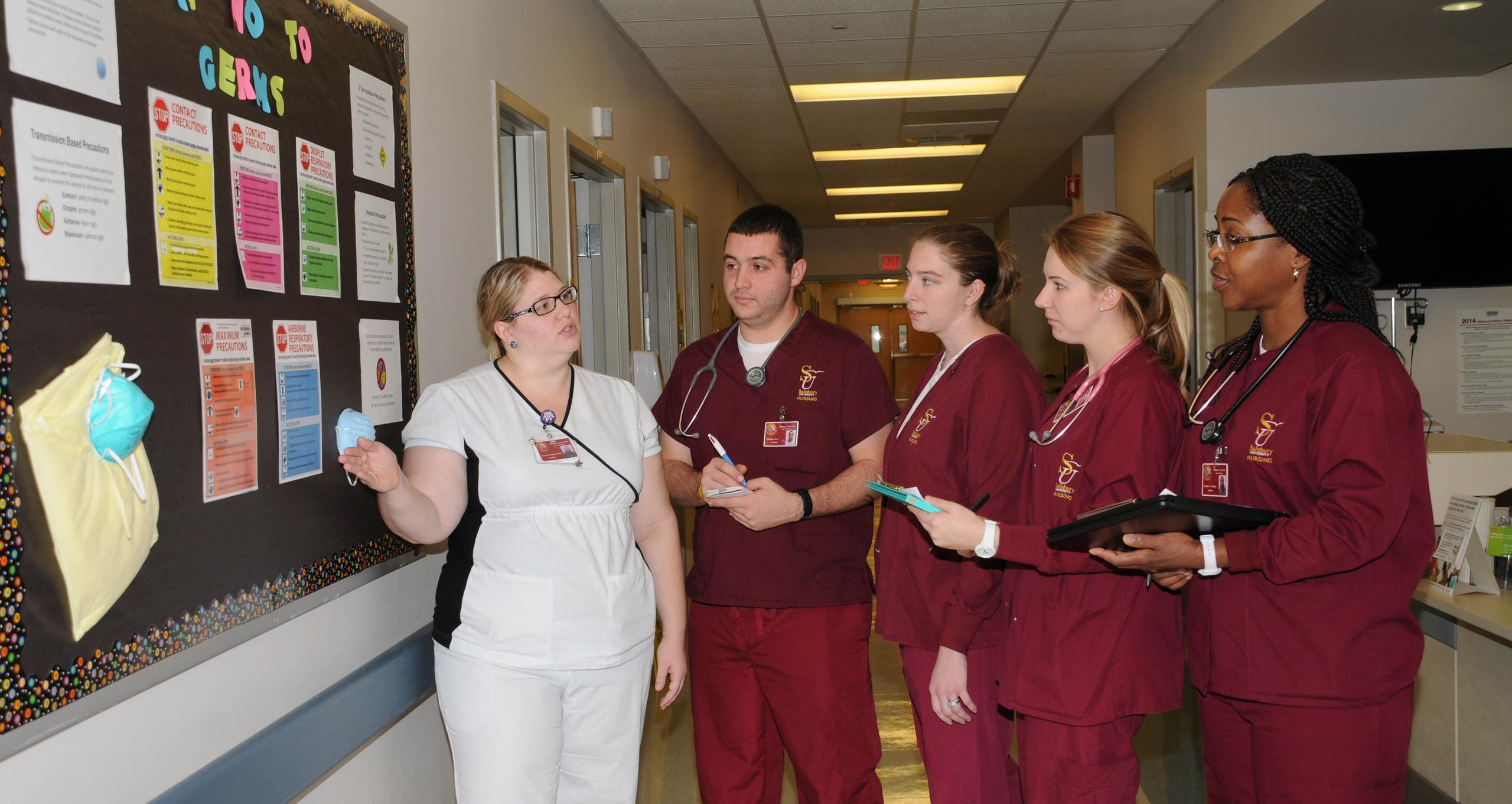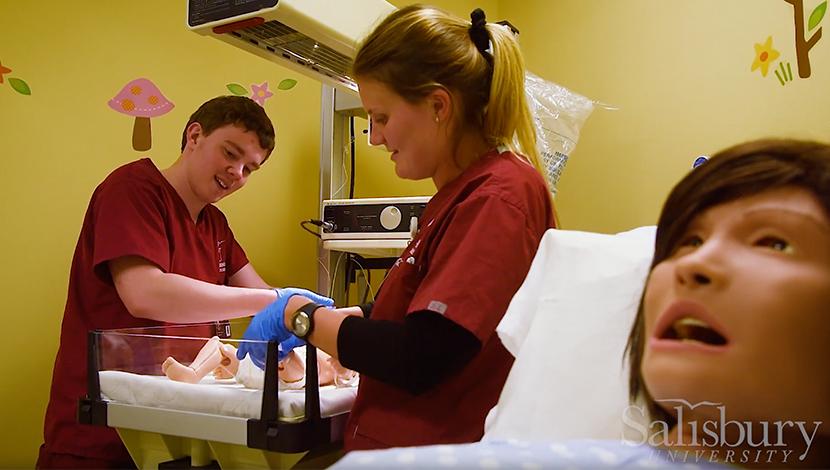
School of Nursing
Our nursing program boasts a highly successful NCLEX RN pass rate, consistently exceeding national averages and preparing our graduates for real-world nursing careers. This demonstrates our commitment to producing highly competent and prepared nursing professionals.
The baccalaureate degree program in nursing, the master's degree program in nursing, the Doctor of Nursing Practice (DNP) program, and the post-graduate APRN certificate program at Salisbury University is accredited by the Commission of Collegiate Nursing Education, 655 K Street NW, Suite 750, Washington, DC 20001, 202-887- 6791.
Our recent accreditation by the Commission on Collegiate Nursing Education (CCNE) for the maximum period is further validation of the quality of our curriculum, faculty and resources.
Please join us to see how you can make tomorrow yours and make a difference in the lives of others
Students in SU nursing programs pride themselves on involvement, participating in a host of community service projects, on and off campus. Our Student Nurses Association has been nationally recognized for community service and has a 21-year record of success with passage of its resolutions at the annual NSNA Convention.
Our faculty engage in research and clinical practice publishing their work in such esteemed journals as Journal of Nursing Education, Nurse Educator and Journal of Professional Nursing and practicing at area hospitals and clinics. They also lend their expertise to national and regional health organizations and advisory boards.
Meet the School of Nursing faculty and staff.
Our Academic Programs
Salisbury University School of Nursing’s BSN programs have been approved by the Maryland Board of Nursing and graduates of those programs are eligible for Registered Nurse licensure in Maryland. Maryland is a member of the Nurse Licensure Compact for RN licensure. Registered Nurses residing in Maryland can practice in any other Compact State with a Maryland license. Salisbury University’s School of Nursing has not sought approval of its BSN programs in any other US jurisdiction. However, RN licensure may be available to graduates through the state’s licensure by endorsement process. Salisbury University’s School of Nursing has not been denied approval of its RN education program(s) by any board of nursing.
Salisbury University’s School of Nursing’s Advanced Practice Registered Nurse (APRN) specialties and programs are approved by the Maryland Board of Nursing, and graduates of those programs are eligible for APRN certification in their specialties in Maryland. Salisbury University’s School of Nursing has not sought approval of its APRN specialties and programs in any other US jurisdiction. However, APRN licensure may be available to graduates through the state’s licensure by endorsement process. Salisbury University’s School of Nursing has not been denied approval of its APRN education program(s) by any board of nursing.
Learn more about the programs offered by our department:
- Nursing major with the following options:
- Traditional B.S.N.
- Second Degree B.S.N.
- RN to B.S.N. for Registered Nurses
- Post-Baccalaureate Certificate: Health Care Management
- M.S.N. with the following options:
- RN to Master’s (No Previous Bachelor’s)
- Health Care Leadership Track
- Nurse Educator Track
- Doctor of Nursing Practice (D.N.P.) with the following options:
- Post-Baccalaureate to D.N.P.
- Post-Master’s to D.N.P.
- Nursing, Family Nurse Practitioner Certificate of Advanced Study
Our program is preparing new primary-care providers to meet the burgeoning need for health care services for people in this region and across the state.
What’s Special About SU Nursing?
Close faculty supervision in clinical courses. For all direct care experiences, clinical groups are typically no larger than eight students. This allows for personal attention and coaching while learning how to think like a nurse. Students also develop close friendships with classmates that last through their years at SU and beyond.
Expert faculty who practice what they teach. All classroom teachers also supervise clinical practice so what is taught in the classroom is readily applied and reinforced in a clinical setting bridging the gap between the “textbook” and the “real world.”
Excellent clinical facilities. SU has clinical affiliations at a variety of hospitals, clinics, health departments and mental health care facilities. Among the hospitals is an award-winning regional trauma center that recently received recognition as one of the “Most Wired Hospitals” in the U.S.
An advisor in your field. All nursing students are assigned a nursing faculty member for academic advisement.
Undergraduate Programs in Brief
The School of Nursing offers three tracks to a Bachelor of Science in Nursing: one for traditional undergraduate students (1st B.S.N.), a second for non-nursing college graduates (2nd B.S.N.) and a third for registered nurses (RN). Baccalaureate preparation for the practice of professional nursing requires a substantial liberal education base for the study of the theory and practice of nursing.
Program Information and Resources
Learn the expectations of the school’s various programs through our Student Handbooks.
-
5 Program Offerings
-
65 First-Degree B.S.N. Cohort Seats
-
750 Sq. Ft. for Simulation Training
